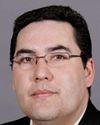I've been in the area of policy development for 15 years. Do you know that it is more complicated today than it was 15 years ago? If I thought I had all the answers to those questions, I would be kidding myself.
The idea here is a very simple one. Let's bring together those who may have an impact on these things and let's come up with something reasonable and see if, once tested, we have come up with the right thing. We're accountable for those policies that are put together.
What the clerk is trying to do, even at the most senior level, is to have that kind of expertise present. When you're talking about the environment, you're not only talking about a department, you're also talking about the whole of the government. When you are talking about transport, it's not only about transport. It's exactly the example that you were giving me.
That's all the government is trying to do, and the clerk is trying to implement something like this at the most senior levels. I think it's worthwhile. We were producing good results.







